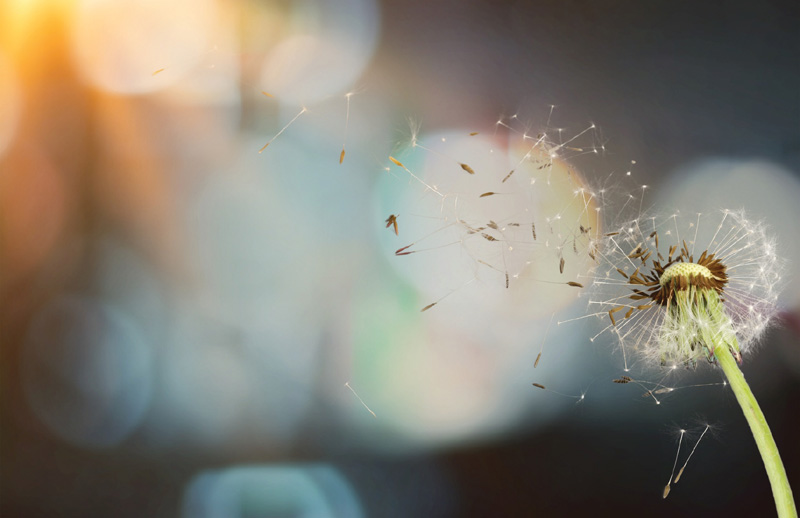When the pollen is falling and the mold is flourishing, there are ways to beat back symptoms naturally. Here’s how.
Central Florida’s mild climate is a real draw, but its long growing season can spell trouble for allergy sufferers. From winter’s yellow oak pollen, through summer’s grass, weeds, and molds, the allergic are likely going to want more than a box of Kleenex.
Yet over-the-counter nasal sprays and antihistamines may not always be the most effective solution. Catherine Onuoha, the owner of Natural Medicine Center of Lakeland, recommends a minimalist approach: “the lowest number of everyday drugs possible.”
“That’s what I think health looks like in the 21st century,” she explains.
Antihistamines shouldn’t be used for extended periods – and commercial nasal sprays may be a bad idea altogether. Oxymetazolone, an ingredient in a nasal inhaler, is habit-forming, she points out.
“For allergies, we have IV [intravenous] administration vitamins and minerals. They’re very effective at quelling the severity of seasonal allergy conditions,” explains Onuoha, who holds a Ph.D. from Medical College of Virginia in Pharmacology and Toxicology.
The Myers cocktail – a combination of B vitamins, Vitamin C, calcium, magnesium, selenium, and zinc – is what some patients rely on. The intravenous treatment, which takes about 45 minutes and lasts about a month. It takes about two and a half to three days to reach its peak efficiency.
She also recommends the Chinese herb Purearia, Magnolia Clear Sinus formula, Cordyceps 3, and Lobeliae, which are helpful for sinuses.
“Beyond the herbals and infusions, I honestly tell people to consider wearing a mask if they have to be outside,” she says. “I also suggest a HEPA [high-efficiency particulate air] filter in the home, the room they spend the most time in.”
A professional thermographer, Onuoha utilizes an infrared camera that can differentiate temperature in people’s tissues and helps identify inflammation. “In the case of allergies, we can see if the sinuses are inflamed,” she says.
The test helps to ascertain the severity of the illness.
Here are some more tips.
Probiotics are a good idea. Probiotics help because they boost your immune system. “Eighty percent of your immune system comes from your gut, and probiotics help with your gut,” she explains.
Go alkaline. Inflammation can’t thrive in that environment, she points out. So anti-inflammatories like apple cider vinegar and turmeric can help. Ionization drops called Shape Reclaimed and Himalayan or Celtic Sea Salt both boost alkalinity as well.
Consume locally-grown, raw honey for help building your immune system to fight local allergens.
Cold-mist vaporizers can help moisturize the air and provide relief.
Allergies are “an overreaction of the immune system,” according to the Centers for Disease Control and Prevention. The things that cause the body to react, called allergens, can cause a variety of symptoms from sneezing, to coughing and itching. They may be annoying or life-threatening. Allergies have also been tied to chronic conditions including sinusitis and asthma, the CDC says.

